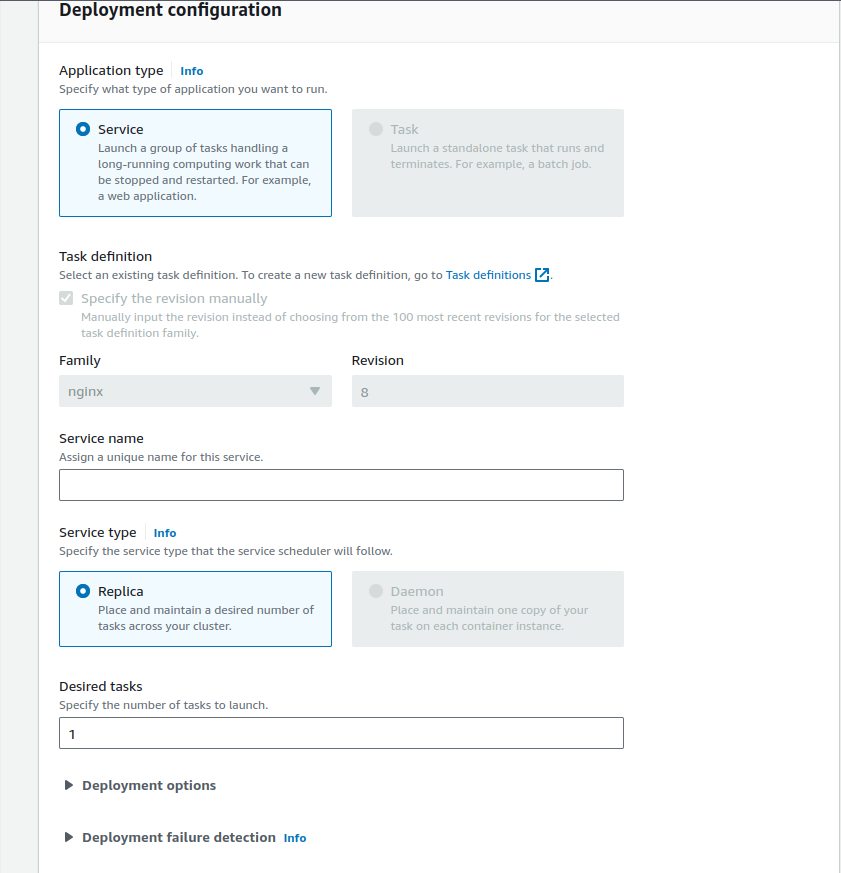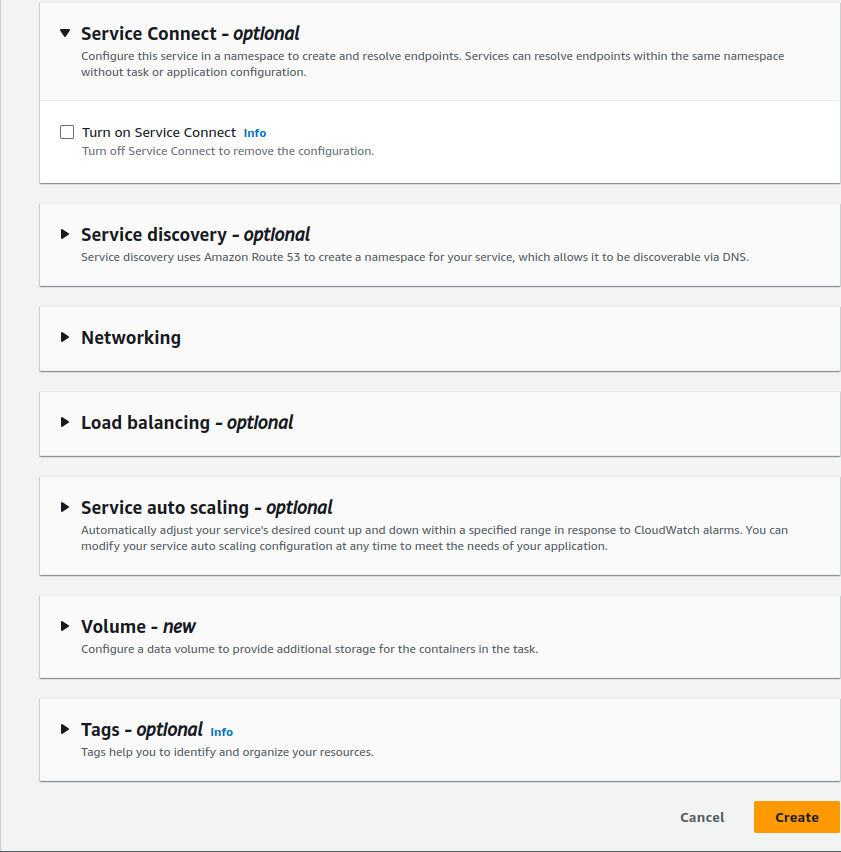Mastering AWS Elastic Container Service (ECS): A Key Component in your DevOps Journey
 Ajit Fawade
Ajit Fawade
Hello, fellow DevOps enthusiasts! Today, we're diving deep into Amazon Web Services' Elastic Container Service (ECS).
In this post, I'll be sharing my insights and learnings about ECS, comparing it with Elastic Kubernetes Service (EKS), and guiding you through the process of setting up Nginx on ECS.
So, let's get started!
What is ECS?
ECS, or Elastic Container Service, is a fully managed container orchestration service offered by Amazon Web Services (AWS). Simply put, it's a service that allows you to run and manage Docker containers on a cluster of virtual machines (EC2 instances) without the need to handle the underlying infrastructure.
Think of ECS as a conductor overseeing an orchestra of containers. The conductor doesn't play any instrument but ensures they all play in perfect harmony. Similarly, ECS doesn't run the applications but ensures your containers are efficiently deployed, managed, and scaled.
The beauty of ECS lies in its versatility. You have the flexibility to choose between two launch types: "Fargate," where AWS manages the infrastructure, and "EC2," where you manage your own EC2 instances. ECS also integrates seamlessly with other AWS services like Elastic Load Balancing, Auto Scaling, Amazon VPC, and more, allowing you to build robust, scalable applications.
Moreover, ECS supports Docker Compose and Kubernetes, enabling you to adopt existing container workflows easily. All these features make ECS a powerful tool for managing containerized applications on AWS.
ECS vs. EKS: A Comparative Analysis
Both ECS (Elastic Container Service) and EKS (Elastic Kubernetes Service) are Amazon's offerings in the realm of container orchestration. While they serve the same purpose, they differ significantly in their architectures, Kubernetes support, scaling mechanisms, flexibility, and community support.
Architecture
ECS follows a centralized architecture where a single control plane manages the scheduling of containers on EC2 instances. On the other hand, EKS leverages a distributed architecture, with the Kubernetes control plane spread across multiple EC2 instances.
Kubernetes Support
EKS is essentially a fully managed Kubernetes service. It allows you to run your Kubernetes workloads on AWS without worrying about managing the Kubernetes control plane. ECS, however, uses its own orchestration engine and lacks native Kubernetes support.
Scaling
With EKS, your Kubernetes cluster can automatically scale based on demand. In contrast, ECS necessitates manual configuration of scaling policies for your tasks and services.
Flexibility
EKS offers greater flexibility than ECS as it allows you to customize and configure Kubernetes to meet your specific requirements. ECS, while effective, offers relatively less flexibility in terms of container orchestration options.
Community
Kubernetes boasts a large and vibrant open-source community, which means EKS benefits from extensive community-driven development and support. ECS, however, has a smaller community and is primarily driven by AWS itself.
Getting Hands-on: Setting up Nginx on ECS
Now that we've understood the basics of ECS and how it compares with EKS, let's get our hands dirty and set up Nginx on ECS.
Step 1: Create a Cluster
Navigate to the AWS Management Console and open the Amazon ECS console.
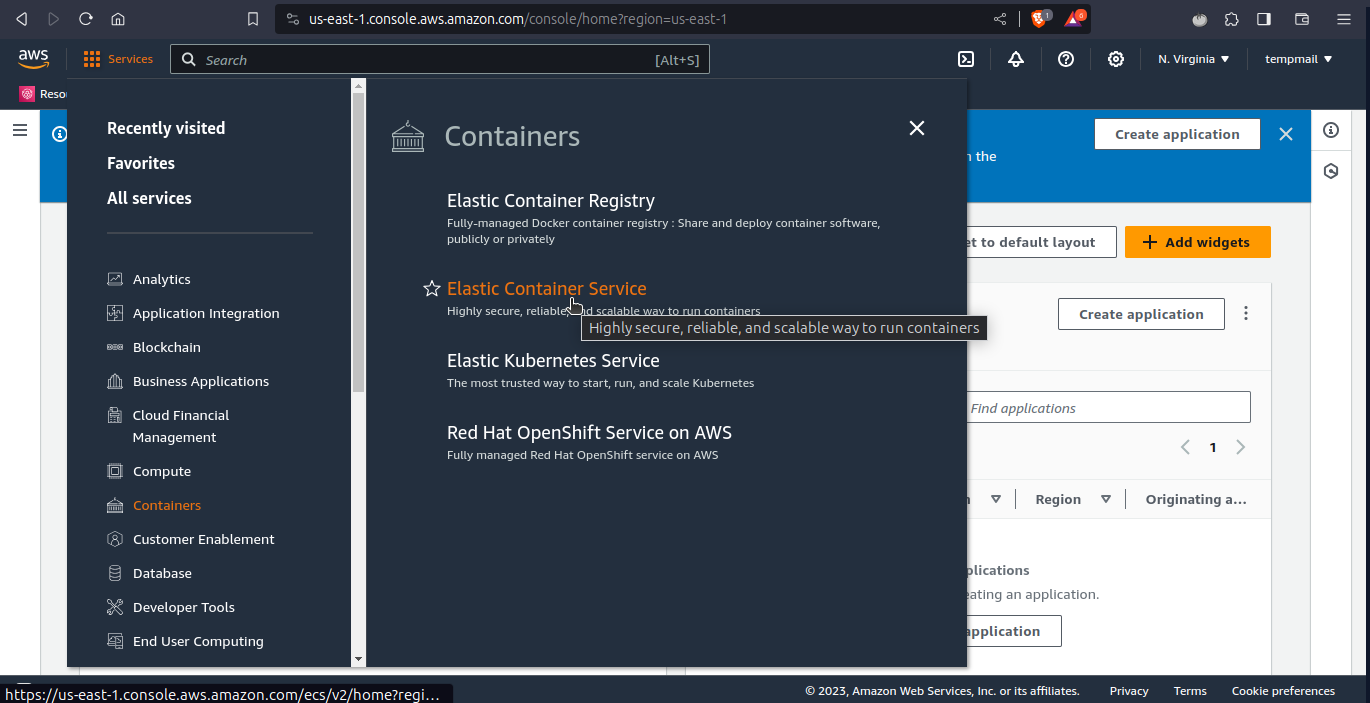
Click on 'Create Cluster', and select the 'AWS Fargate' option.
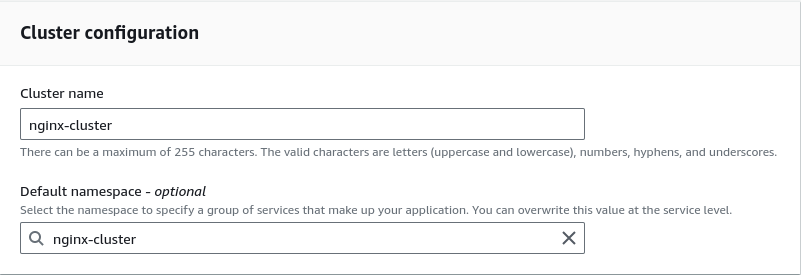
Fill in the necessary details, including cluster name, instance type, and number of instances.
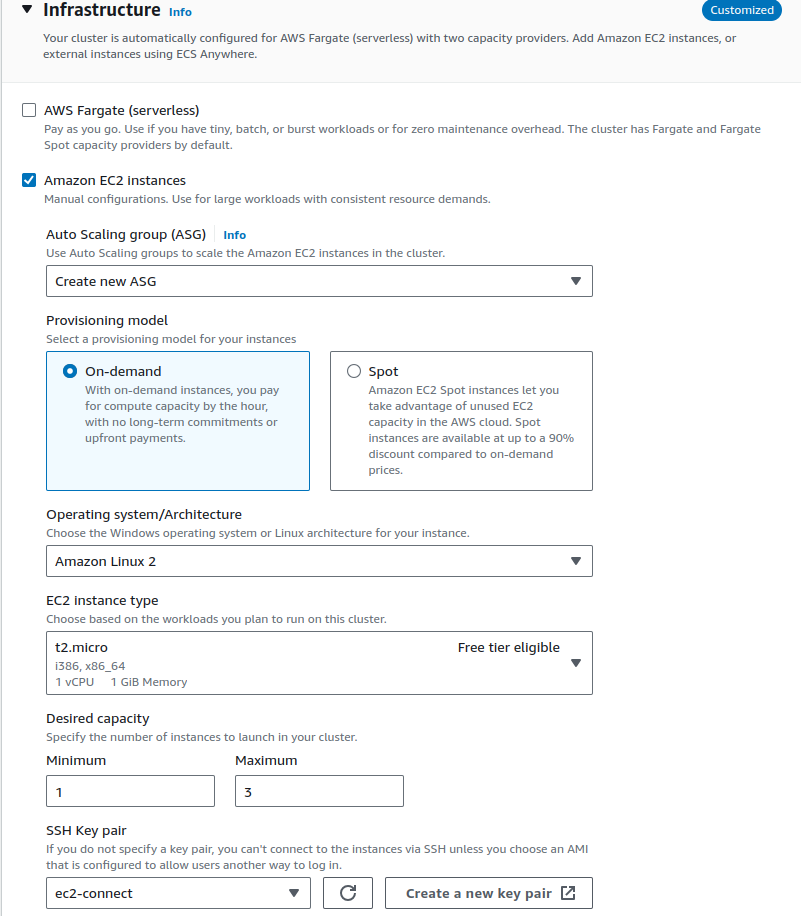
Click on 'Create'.
Step 2: Create a Task Definition
In the left-side navigation pane, choose 'Task Definitions', then 'Create new Task Definition'.
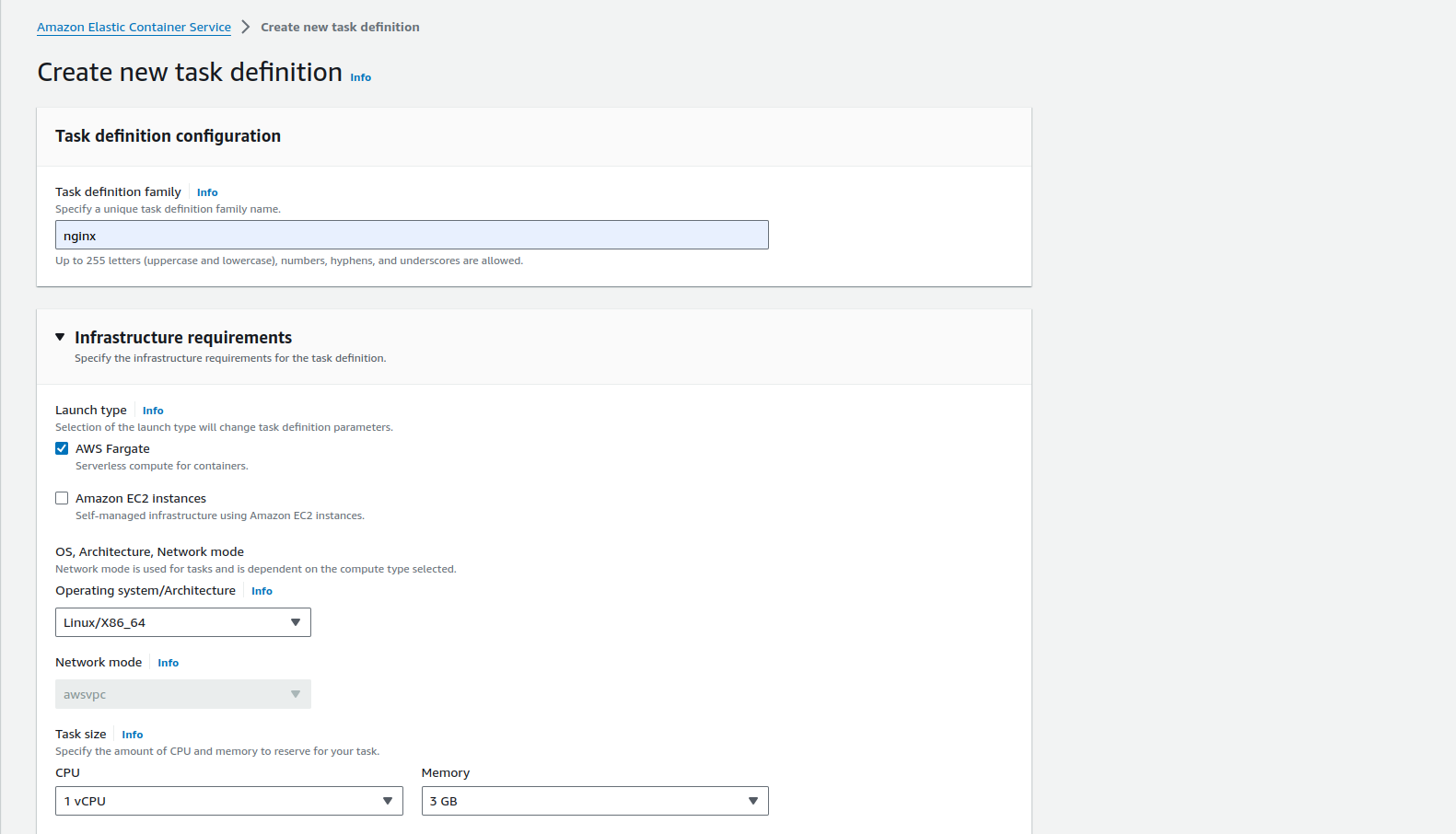
Select 'AWS Fargate' launch type compatibility and click 'Next step'.
Specify the task name, task role, network mode, and task memory and CPU values.
Under 'Container Definitions', click 'Add container' and provide the necessary details, including image, memory limits, and port mappings.
Click on 'Add', then 'Create'.
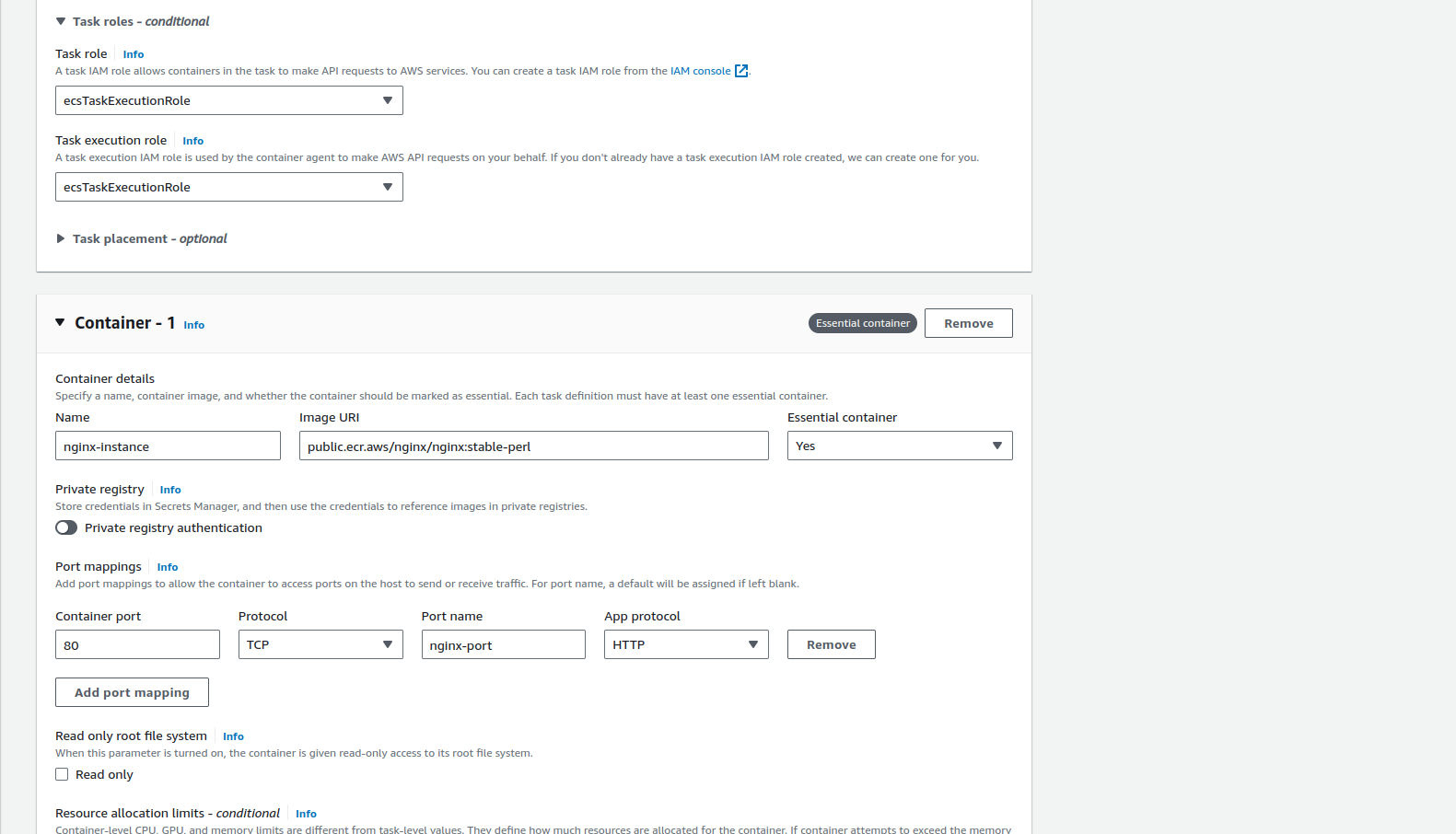
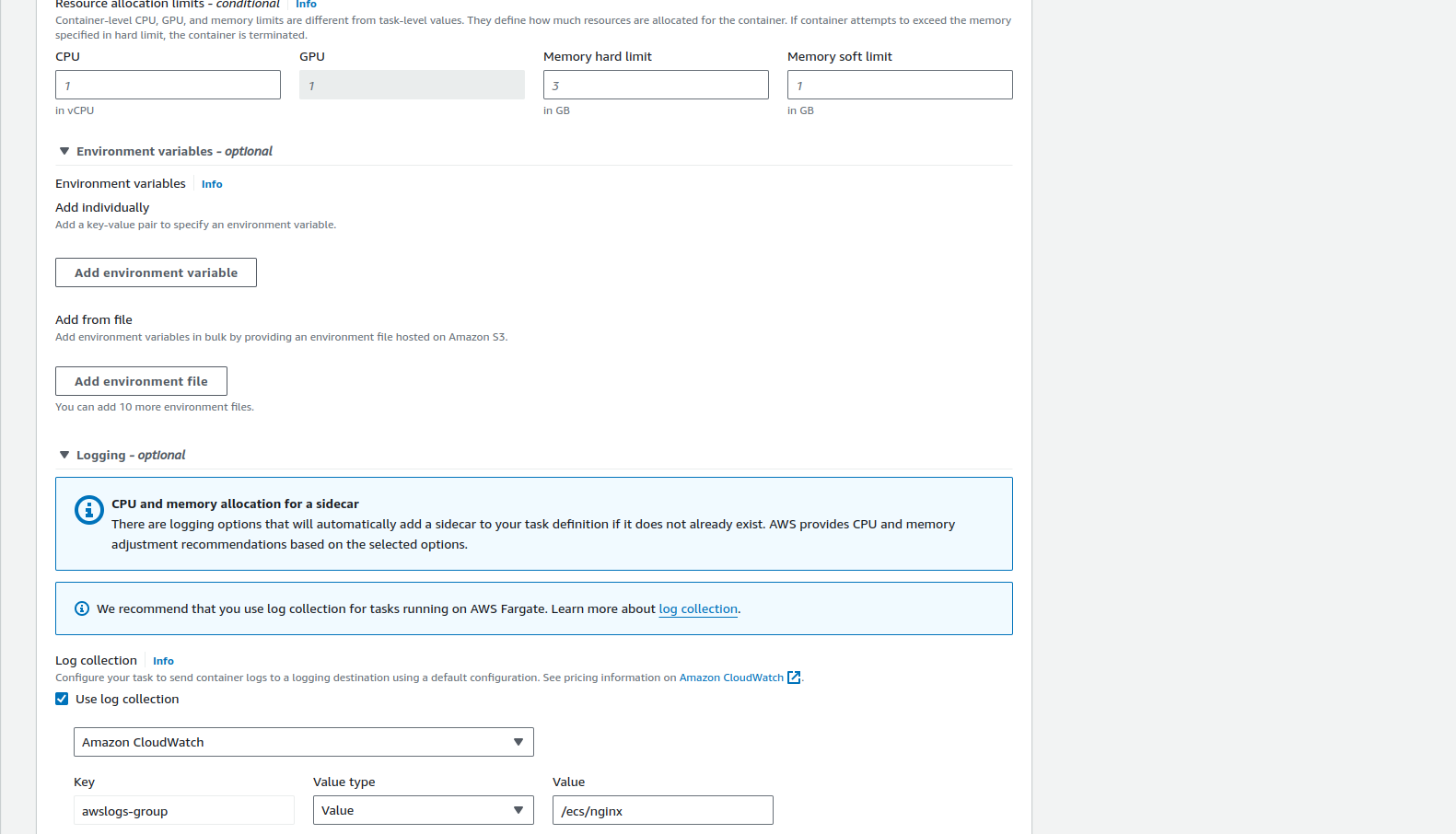
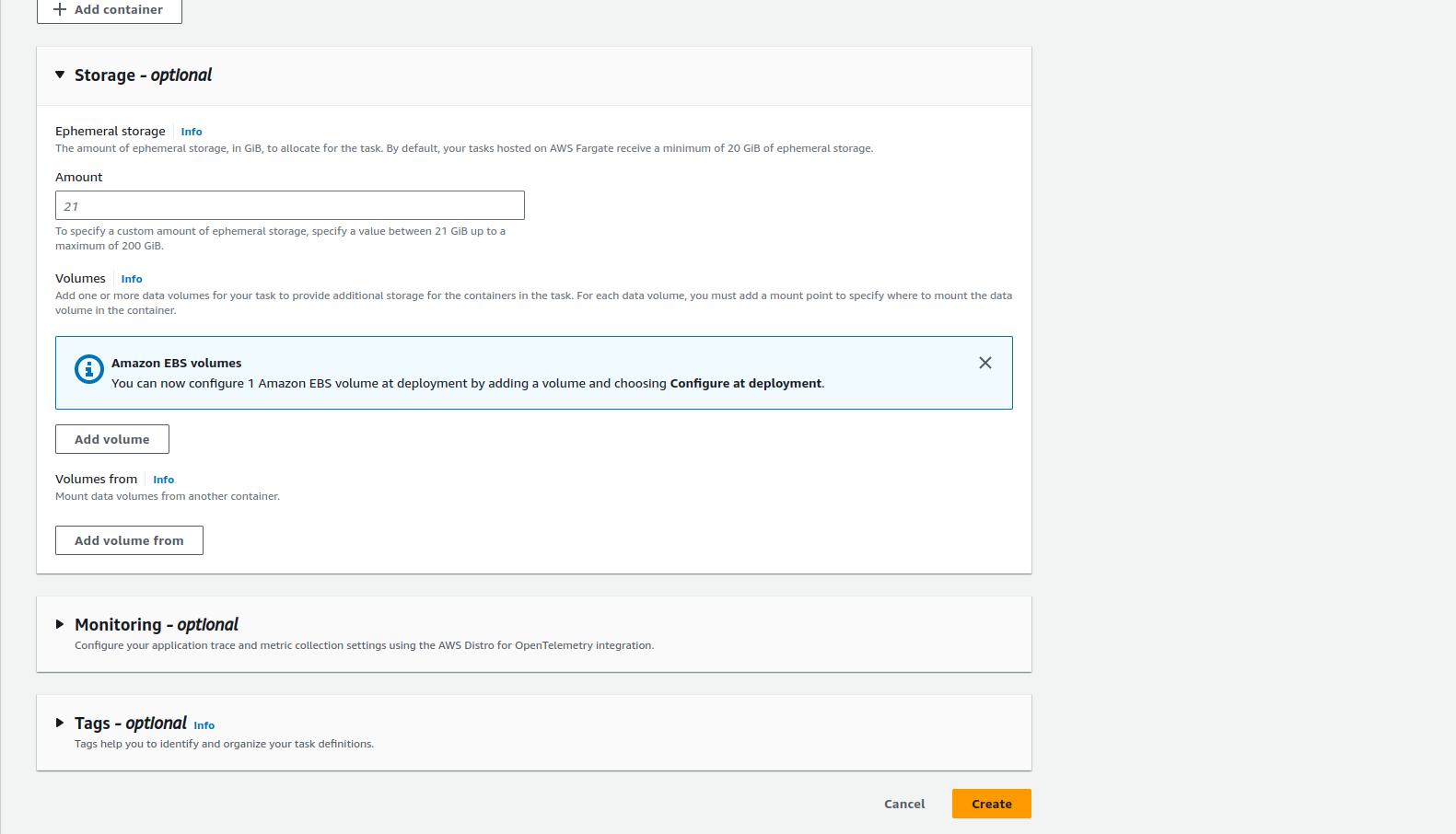
Step 3: Create a Service
Return to your cluster page and click on 'Create' under 'Services'.
Select the task definition you created earlier, specify the service name, and choose the number of tasks to run.
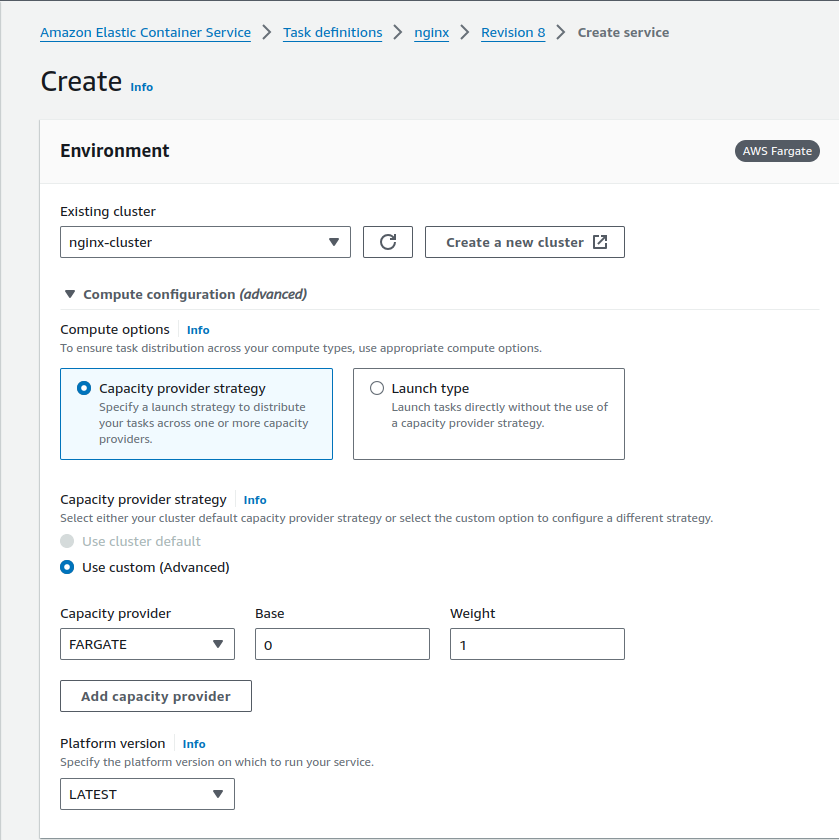
Configure network settings and load balancing as per your requirements.
Click on 'Next step', review your settings, and click 'Create'.
And there you have it! You've successfully set up Nginx on ECS. This hands-on experience should give you a better understanding of how ECS operates and how it can be used to manage and orchestrate containerized applications.
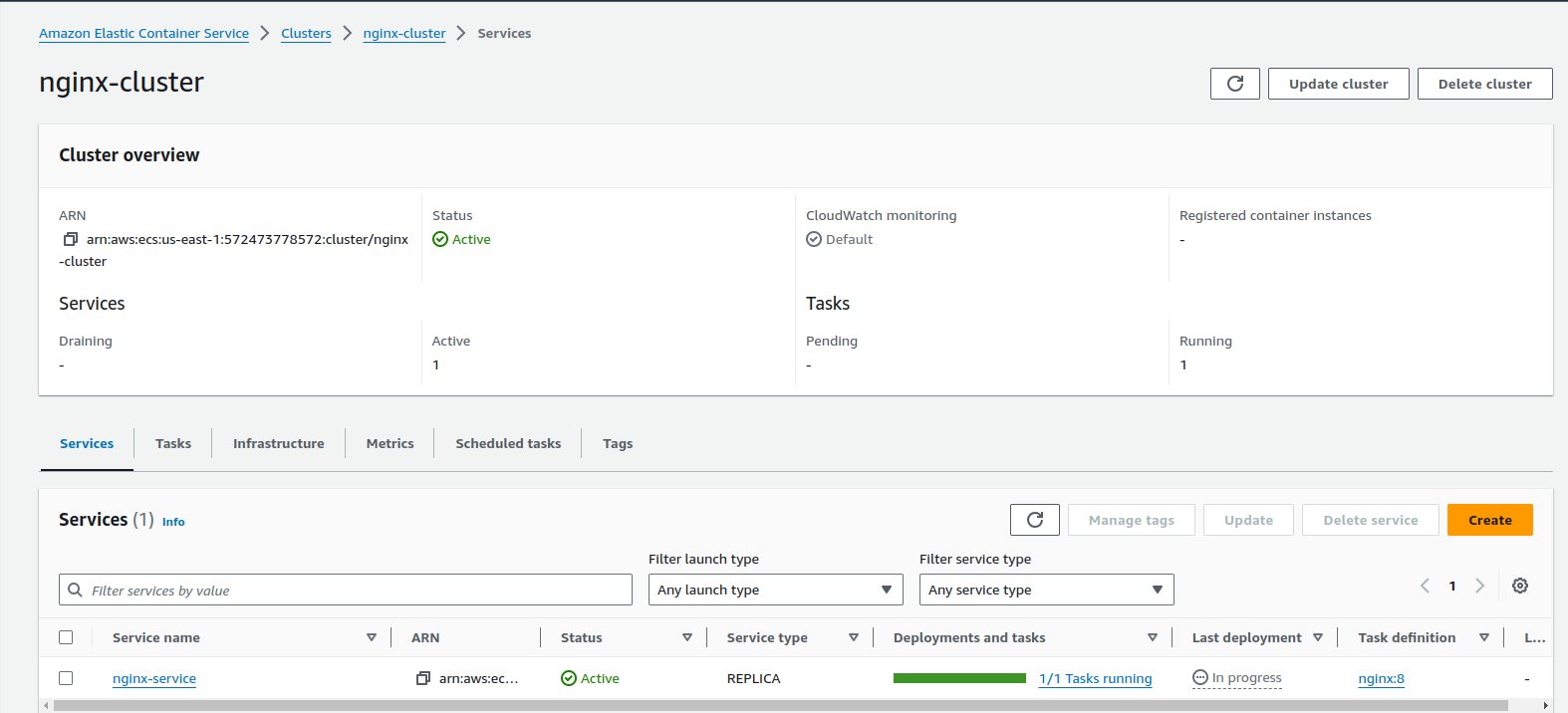

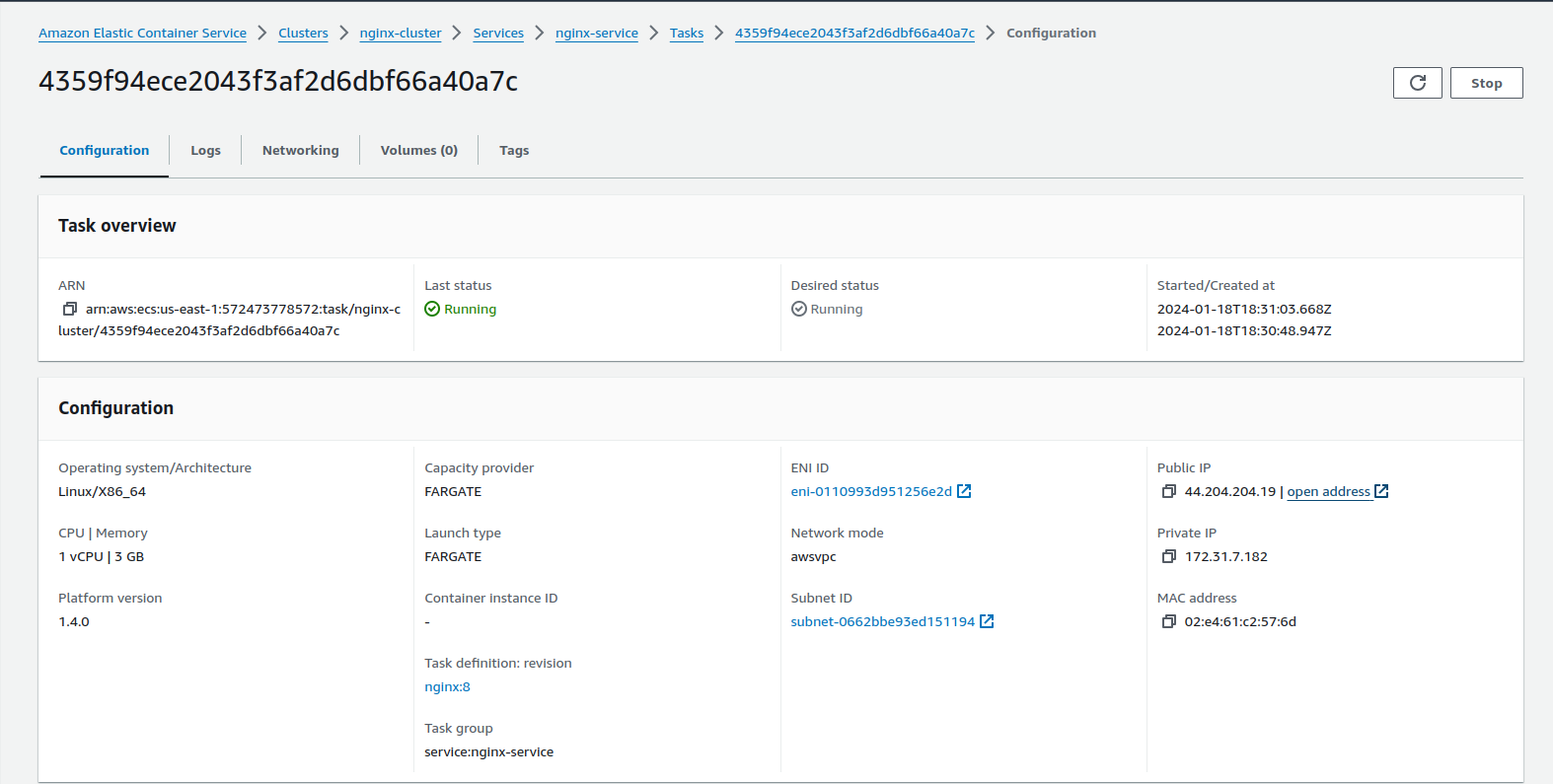
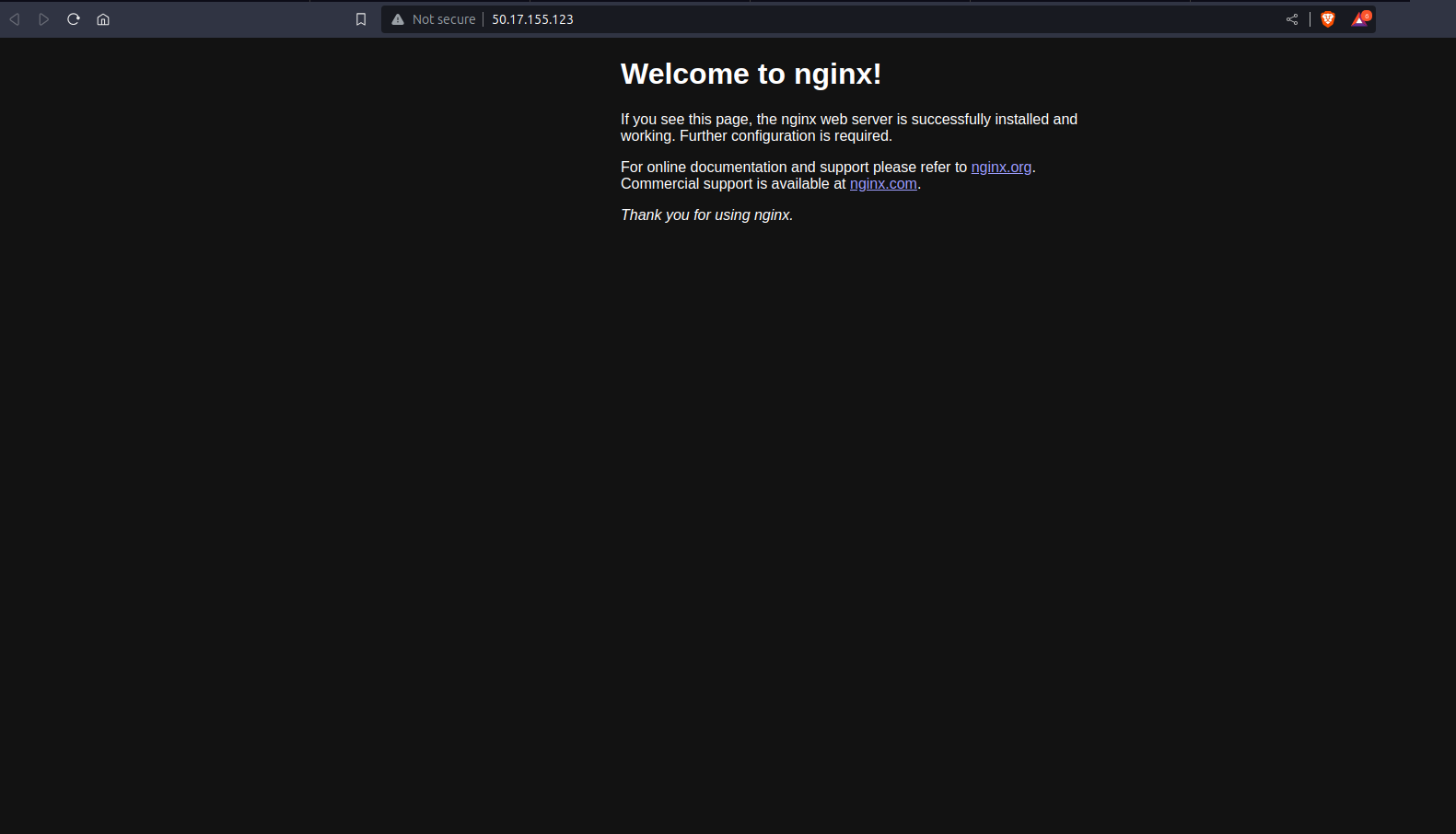
Conclusion
As we delve deeper into our DevOps journey, we continue to explore and master powerful tools like AWS ECS. With its robust integration capabilities, ECS provides a versatile platform to efficiently manage Docker containers on the AWS cloud.
Despite being somewhat overshadowed by the popularity of Kubernetes and EKS, ECS still holds its ground as a reliable, AWS-native container orchestration service. Its unique features and advantages make it an excellent choice for certain use cases.
So, continue experimenting, learning, and sharing your knowledge with the DevOps community. Stay tuned for more exciting insights in our upcoming posts!
For additional resources on ECS, I recommend visiting the official AWS ECS documentation.
Remember, the path to becoming a DevOps expert involves continuous learning and hands-on experience. So, keep exploring, keep learning, and keep growing.
Until next time, happy DevOps-ing!
Subscribe to my newsletter
Read articles from Ajit Fawade directly inside your inbox. Subscribe to the newsletter, and don't miss out.
Written by

Ajit Fawade
Ajit Fawade
👩💻 As a seasoned software engineer with 7+ years of experience, my expertise includes: 🌐 Developing web applications using Javascript (frontend and backend) 💼 Working across diverse industries like construction, finance, marketing, and entrepreneurship 🎓 Holding a postgraduate degree in Master of Computer Applications from the University of Pune 🔧 My technical prowess lies in: ⚛️ Leading Javascript frameworks: React, Node.js, and Express.js 🚀 Delivering robust and scalable web applications with the best software engineering practices 🌱 Excitingly, I've started my DevOps learning journey with #90DaysOfDevOps to enhance my skills in this area. 🧠 Beyond technical skills, I offer: 💡 Exceptional problem-solving abilities and a strong aptitude for learning new technologies 🤝 A collaborative mindset, making me a valuable team player in diverse environments 🚀 My passion is in delivering high-quality software solutions that solve real-world problems. If you're seeking a skilled and experienced software engineer for top-notch web applications, let's connect and explore potential opportunities together! 🤝
